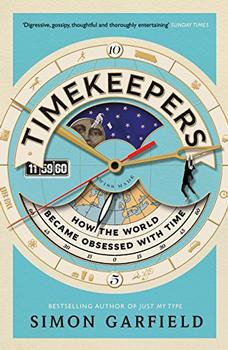Summary | Excerpt | Reviews | Beyond the book | Read-Alikes | Genres & Themes | Author Bio

Dispatches from the Territories and Other Far-Flung Outposts of the USA
by Doug MackIt all started harmlessly enough: Doug Mack was playing around with a portfolio of quarters, one for each state, when he noticed that more slots could be filled in past Hawaii. These were the territories. When his wife, Maren, asked him what the deal was with these lands, Mack was embarrassed that he, with a college degree in American Studies, couldn't answer the question. Determined to right this wrong, he decided to learn more by visiting the five inhabited U.S. territories: Puerto Rico, Guam, Northern Mariana Islands, the U.S. Virgin Islands and American Samoa. I know what you're thinking: "It's a tough job, someone's got to do it."
What follows is a mix of travelogue and history, peppered with anecdotes from fellow travelers and locals who Mack meets along the way: a different kind of all-American road trip if you will. Readers expecting a jaunty Bill Bryson style of travel writing, especially to the sunlit tropical climes, will certainly get plenty of long soaks in pristine waters along the way. In one breathtaking paragraph, for example, Mack describes rinsing soap off his face under an outdoor shower in American Samoa only to look up through the tree branches to be rewarded with a stunning view of the Milky Way.
But Mack goes beyond the familiar tiki bar and drinks in hollowed out pineapples tropes to explore the history of American expansionism. At the turn of the twentieth century, the United States, fresh on the heels of a stronger federal government after the Civil War, wondered if it should annex other colonies. After all, it had been watching the Europeans doing so. The quick answer was: yes. In short order, the U.S. annexed Hawaii, and then claimed Puerto Rico, Guam and the Philippines in the Spanish-American war, Mack writes. In a flash, American ambitions had been refocused on distant populated corners of the map.
In the book Doug visits the five inhabited U.S. territories and explores the history of how they became part of the United States (but not quite). The version for each is as different as the territory itself and together they present a convoluted picture, one that will take at least more than one reading to fully absorb.
Mack makes for an engaging travel companion, but on occasion his self-deprecation goes into overdrive. After he gives a set of kids five dollars to split among themselves he worries if that was "1. a cosmic guilt for embodying, in this small way, the Corrupting, Patronizing Forces of Outsiders; 2. an indignant self-scolding: Geez, haven't they earned it? Can't we spare it? Couldn't it maybe possibly help them a teeny-tiny bit?" Fortunately, at the end of all this hand-wrangling and overdose of liberal guilt, he does conclude that it was probably "best not to read too much into this; we were neither saviors not corrupters, just tourists passing through, forgotten by tomorrow."
While the historical facts are engaging in their own right, Mack sometimes tries too hard to make them palatable: "We are, famously, a nation of guileless cockiness, leaving the rumination to those espresso-drinking Old Worlders, but in Mr. Speak Softly and Carry a Big Stick we get dashes of all of the above," he writes, when referencing Teddy Roosevelt, whom he refers to as the "Founding Father of the American Century." These dramatic pronouncements are doubtless meant to lighten the narrative, but they instead come across as too earnest and chipper, and therefore distract from the actual facts being presented. The writing style here is so conspicuously cutesy that it occasionally threatens to drown the material. The sudden lurches between history lessons and "banter with the natives" style of writing also gets disorienting after a while.
In the end, The Not-Quite States of America proves to be an absorbing ride into the history of the United States, regions of the country beyond the "sea to shining sea" narrative that very few Americans know much about. This is Mack's greatest contribution – to give the territories their just place under the sun. That we get to go along for the turquoise waters and friendly people is icing on the cake.
![]() This review was originally published in The BookBrowse Review in April 2017, and has been updated for the
March 2018 edition.
Click here to go to this issue.
This review was originally published in The BookBrowse Review in April 2017, and has been updated for the
March 2018 edition.
Click here to go to this issue.

If you liked The Not-Quite States of America, try these:

by Robert Macfarlane
Published 2020
From the best-selling, award-winning author of Landmarks and The Old Ways, a haunting voyage into the planet's past and future.

by Simon Garfield
Published 2018
As managing time becomes the greatest challenge we face in our lives, this multi-layered history helps us tackle it in a sparkling new light.
Your guide toexceptional books
BookBrowse seeks out and recommends the best in contemporary fiction and nonfiction—books that not only engage and entertain but also deepen our understanding of ourselves and the world around us.